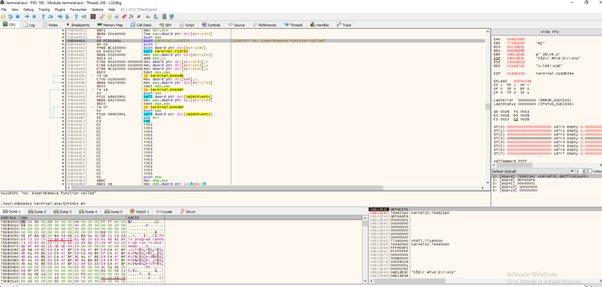You’ve likely encountered an EX4 file, the compiled format for MetaTrader 4 (MT4) trading strategies, and wondered if it’s possible to reverse-engineer it into an MQ4 file, the source code format. While it may seem like a straightforward process, decompiling EX4 files is a complex and potentially risky endeavor. You might have stumbled upon third-party decompiler tools claiming to do the trick, but do they really deliver? As you weigh the pros and cons, you’re probably left with more questions than answers. What are the risks involved, and what are the limitations of decompiling EX4 files?
Understanding EX4 and MQ4 Files
Most traders have come across EX4 and MQ4 files when working with MetaTrader, a popular trading platform.
You might’ve wondered what these files are and how they differ from each other.
EX4 files are compiled files that contain executable code for MetaTrader. They’re essentially the final product of a programming process, making them unreadable to humans.
When you purchase or download an indicator or Expert Advisor, it usually comes in an EX4 format. You can’t modify or view the code inside an EX4 file, as it’s protected by the compiler.
On the other hand, MQ4 files are source code files that contain the programming language MQL4.
They’re human-readable, and you can view and modify the code inside them. MQ4 files need to be compiled into EX4 files before they can be used in MetaTrader.
You can edit and customize MQ4 files to suit your trading needs, making them a popular choice among developers and advanced traders.
Understanding the difference between these two file types is crucial if you want to work efficiently with MetaTrader.
The Official Stance on Decompilation
As you explore the world of MetaTrader, you’re likely to encounter the need to access the source code of an EX4 file.
This raises the question of decompilation, and what the official stance is on this practice.
MetaQuotes, the company behind MetaTrader, has made it clear that they don’t support or condone decompiling EX4 files.
In fact, their licensing agreement explicitly prohibits reverse-engineering or decompiling their software, including EX4 files.
This is because EX4 files contain compiled code that’s meant to be protected from unauthorized access or modification.
Third-Party Decompiler Tools Explained
Several third-party decompiler tools are available online, claiming to successfully decompile EX4 files into MQ4 files.
You’ll find a mix of free and paid tools, each with its own set of features and limitations. Some popular options include EX4-TO-MQ4, Decompiler EX4, and MQL Decompiler.
These tools typically work by reverse-engineering the EX4 file, attempting to recreate the original MQ4 source code. When using these tools, you’ll often need to upload your EX4 file or provide a download link. The decompiler will then process the file and generate an MQ4 file, which you can download.
Be cautious, though, as the quality of the decompiled code can vary greatly. You may need to manually review and edit the code to ensure it’s functional and error-free.
It’s essential to understand that not all decompilers are created equal. Some may produce better results than others, and some may even introduce malicious code or viruses. Always research the tool and its developers before using it, and exercise caution when working with the resulting code.
Decompilation Methods and Workarounds
How do you approach decompilation when third-party tools aren’t an option or don’t produce satisfactory results?
In such cases, you’ll need to explore alternative methods and workarounds to achieve your goal.
One approach is to manually reverse-engineer the EX4 file by analyzing its binary code.
This requires a deep understanding of the MQL4 language and the internal structure of the ex4 to mq4 decompiler file.
You can use a disassembler to break down the code into its constituent parts, and then attempt to reconstruct the original source code.
Another method is to use a hex editor to examine the EX4 file’s hexadecimal code.
By searching for specific patterns and structures, you may be able to identify and extract the underlying MQL4 code.
This process can be time-consuming and requires a great deal of patience and skill.
Additionally, you can try to reproduce the functionality of the EX4 file by creating a new MQ4 file from scratch.
Risks and Limitations of Decompiling
Decompile EX4 to MQ4
Risks and Limitations of Decompiling
Decompiling an EX4 file to MQ4 comes with its own set of risks and limitations.
One major risk is the loss of intellectual property. If you’re decompiling someone else’s EX4 file, you may be infringing on their copyright.
Additionally, decompiling can lead to errors or bugs in the resulting MQ4 code, which can be challenging to identify and fix.
Another limitation is that decompilation tools may not always produce accurate results.
The quality of the decompiled code can vary greatly depending on the tool used and the complexity of the original code.
You may end up with code that’s difficult to understand or modify.
Furthermore, some EX4 files may be protected with anti-tampering measures, making it impossible to decompile them successfully.
You should carefully weigh these risks and limitations before deciding to decompile an EX4 file to MQ4.
Conclusion
You’ve reached the end of this journey, and it’s time to decide: is decompiling EX4 to MQ4 worth the risk? Remember, decompilation methods can introduce malicious code, and reproducing EX4 file functionality from scratch is a challenge. Be aware of the potential infringement of intellectual property and copyright. Weigh the risks and limitations carefully before attempting to decompile EX4 files. Proceed with caution, and consider the potential consequences of your actions.

